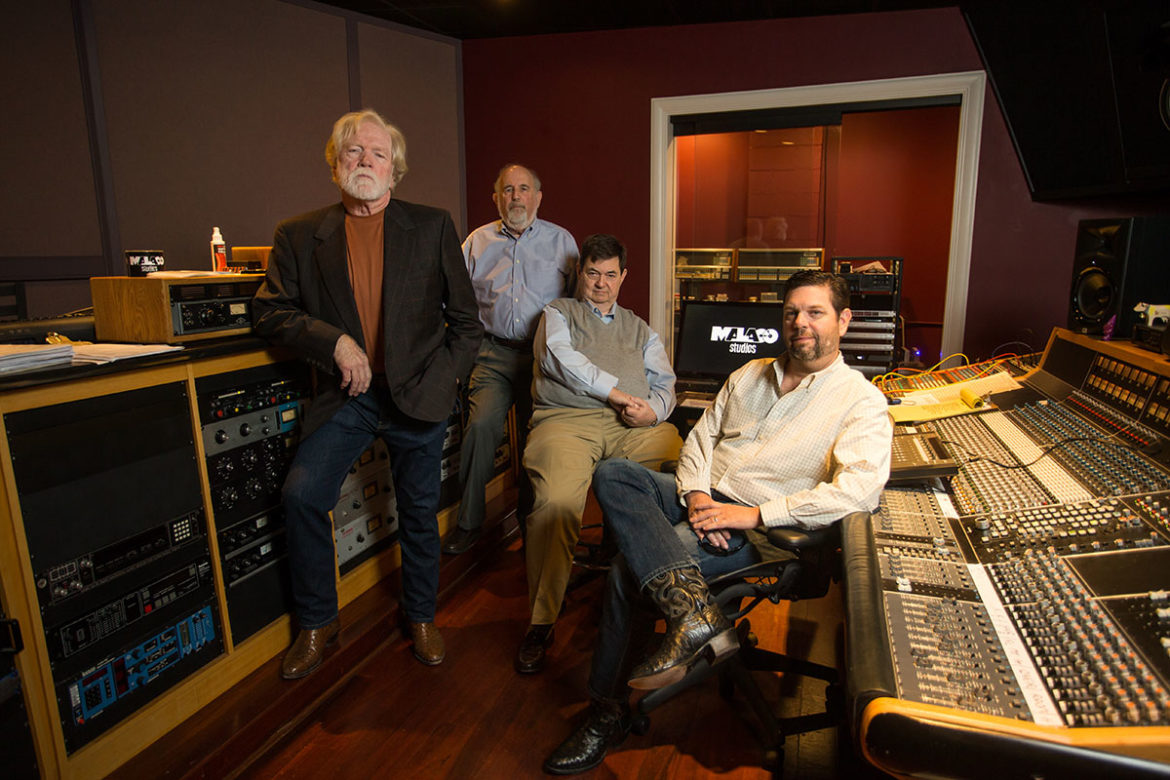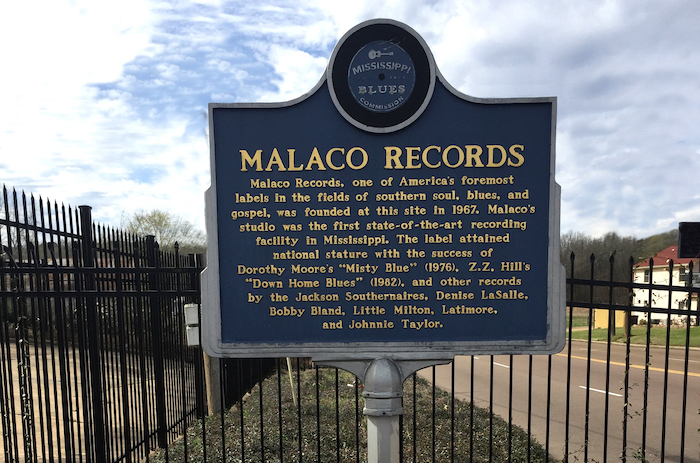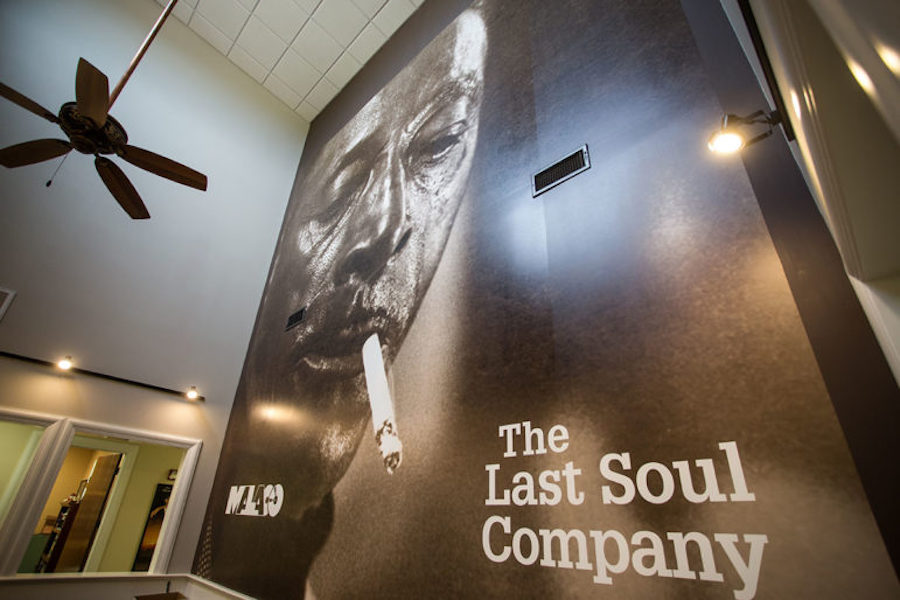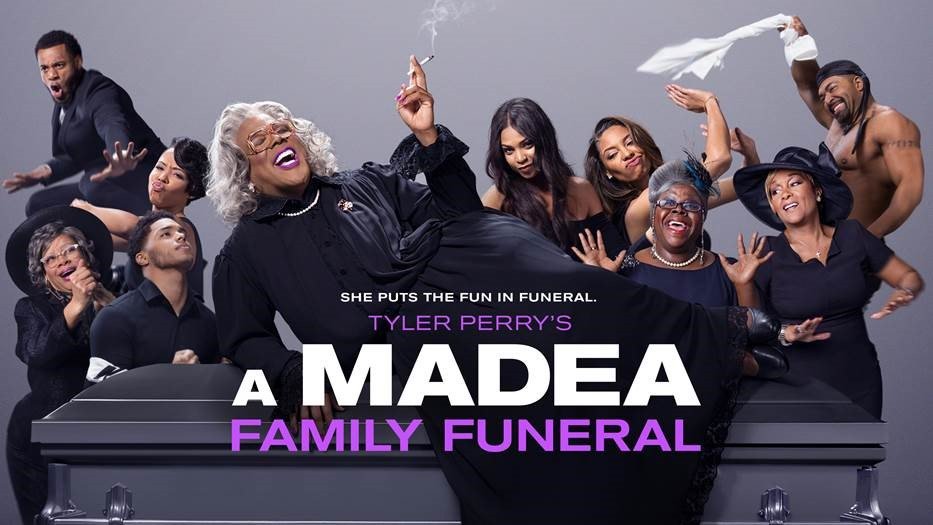Known as “The Last Soul Company”, our client Malaco Records has stood the test of time. One of America’s foremost labels in the fields of southern soul, blues, and gospel, the Mississippi-based company celebrated its 50th Anniversary last year and shows no sign of slowing down.
In this Q&A with Malaco’s co-founder Tommy Couch, Sr. and Film & TV Licensing Executive Director Louise Black, we chat survival, the business of soul and blues, and preserving the Malaco legacy for years to come…
Congratulations on Malaco’s 50th anniversary! The company has overcome tremendous adversity, from its early struggles to surviving a tornado. What’s the secret to Malaco’s success and longevity?
We’re stubborn survivors. The management at Malaco has prevailed through many changes in the music industry, going through several feast to famine business cycles in the beginning until we established ourselves as a true independent record and publishing company. From that point on, we just grew the business by building our music catalog. The tornado did cause some hardships; however, other than relocating while our campus was rebuilt, the business continued. The biggest challenge of the last several years has been the transition from physical to digital-based sales.
Can you talk us through Malaco’s rich musical heritage and roster, and the umbrella of companies in the Malaco group?
Malaco started out as a recording studio, modeled to a degree on what was going on in Memphis and in Muscle Shoals. We made records and leased them to major record companies, and were successful almost from the beginning. Our first record of note was “I Do Not Play No Rock & Roll”, a Grammy nominated album by Mississippi Fred McDowell. Next came two gold records: King Floyd’s “Groove Me” and Jean Knight’s “Mr. Big Stuff”. A couple of years later we started releasing records on our own Malaco imprint and our first gold record was Dorothy Moore’s “Misty Blue”. Our first major blues artist was Z.Z. Hill whose album “Down Home” was certified gold.
With this success, we were able to sign several national blues and soul artists which stabilized our artist roster base. Little Milton, Bobby “Blue” Bland, Johnnie Taylor, Latimore, Shirley Brown and Denise LaSalle all signed with Malaco. In the mid-1970s, Malaco started building its gospel catalog similar to how we developed our soul/blues artist base. The Jackson Southernaires were our first major gospel group which led us to signing many other top gospel groups in the country. Today Malaco is the largest gospel music company in the world, encompassing thousands of recordings and compositions. In addition to the Malaco label, the company also owns Savoy Gospel Records, Atlanta International Records, Apollo Records, Muscle Shoals Sound Records and several other smaller labels.
You represent legendary copyrights but also rising artists. How do you balance the two?
Our new artists are marketed just as much as our legendary artists, whether they are known or not. We have our soul, blues, and gospel catalogs with both legacy and newer artists, and other current artists which are marketed under genres including Americana and modern country. The entire staff is dedicated to working with our rising artists – from music and video production, to touring, PR and licensing.
How are you seeing the business of soul and blues music evolving?
Soul and blues is always evolving! It’s the story of the people, and while that story changes with the times, the need to express oneself remains the same. And as the topics of songs change so do the delivery methods of the music. We have several artists in the catalog whose first releases were on 78’s and their later releases were on CD and download. We have to be aware of the changes in technology and embrace them.
“Soul and blues is always evolving! It’s the story of the people, and while that story changes with the times, the need to express oneself remains the same. And as the topics of songs change so do the delivery methods of the music.”
How have you adapted your working methods and embraced change in the modern music business? What have been the biggest challenges?
It’s all about the metadata and attention to details. The biggest challenge is ensuring that our audience is able to easily find and listen to our catalog. As new models are moving away from screen-based consumption, into a world driven by voice commands, we have to ensure that our tracks are catalogued and indexed properly. Every service wants things formatted slightly differently, so it’s critical to stay on top of the latest requirements. And then on the flipside we’re getting larger and larger amounts of data back from the services, which is amazing for marketing purposes, but presents its own challenges in terms of processing and analysing millions of rows of sales or analytics data.

L-R: Wolf Stephenson, Stewart Madison, Tommy Couch Sr., and Tommy Couch Jr., of Malaco Records. Photo credit: Ron Blaylock
Let’s talk sync – so many classic soundtracks feature Malaco cuts! Can you talk us through some of the highlights?
A classic sync was “Old Time Rock & Roll” written by George Jackson in the film Risky Business, and it was also used in Steel Magnolias. Other film highlights were “Ring My Bell” in Austin Powers in Goldmember, “Groove Me” by King Floyd in Swingers, two gospel songs in Fences (directed by and starring Denzel Washington) and “Victory Is Mine” by Dorothy Norwood in The Help.
Where are you seeing opportunities for Malaco artists in sync coming from in 2019? How have digital platforms like Netflix and Hulu changed the game?
With the increase in new content being produced for both conventional and digital platforms, there is even more demand and opportunities to pitch our music. Companies like Netflix, Hulu and Amazon realize the importance of including great music in their shows. Our diverse and unique catalog offers producers and music supervisors something they can’t get anywhere else.
“Companies like Netflix, Hulu and Amazon realize the importance of including great music in their shows. Our diverse and unique catalog offers producers and music supervisors something they can’t get anywhere else.”
Can you give us some examples of recent Malaco syncs?
Most recent syncs include “Ring My Bell” by Anita Ward in a national Walmart commercial, a Google Pixel commercial featuring 2 Chainz with “So Good To Be Alive” by The Truthettes, “Believe” by Gemstones in a trailer for the upcoming Sony film Exposure and two songs in the new Tyler Perry film A Madea Family Funeral (in addition to songs licensed in 4 of the previous Madea films).
What does the gospel/worship music market look like in 2019? How have you seen it evolve in recent years?
2019 has been a good year for gospel music. It is expanding rapidly from being music in the church to more mainstream appeal. An example is on June 26, 2019 Bebe Winans appeared on a national daytime TV show on ABC performing his latest release “Laughter Just Like A Medicine”, which is distributed by Malaco. We are seeing more opportunities for our gospel copyrights in movies, commercials and samples, which didn’t exist a few years ago.
“We are seeing more opportunities for our gospel copyrights in movies, commercials and samples, which didn’t exist a few years ago.”
Malaco must get a ridiculous amount of sample requests! How have you seen that side of the business change over the years?
Yes, we do! Malaco had their first major sample in 1992 with “Baby Let Me Kiss You” by King Floyd used in Shaggy’s “Boombastic”. The biggest change in sample requests we’ve seen has been the interest in gospel songs. A few recent examples of this include “Higher” by DJ Khaled (featuring John Legend and Nipsey Hussle), which includes the sample “Oh Give Thanks” by Myrna Summers and “Topanga” by Trippie Redd using “It Ain’t Over” by Maurette Brown Clark. We also have songs included in “Bickenhead” by Cardi B, which samples “Bitches Reply” by DJ Jimi, and “Come Back Baby” by Pusha T, using “The Truth Shall Make You Free” by King Hannibal.

A Mississippi Blues Trail Marker notes Malaco’s role in the state’s musical heritage.
What are your hopes and goals for the next 50 years of Malaco? How will you go about preserving the legacy and value of Malaco for years to come?
Our main goal for the next 50 years is to continue to build on what we have accomplished and learned over these past 50 years. While crafting a great catalog we’ve also learned and incorporated some valuable lessons – both are assets in moving forward for another 50 years. In addition to developing, marketing and promoting talent across multiple genres including gospel, Southern soul, blues and American/country, we are always looking to expand and build our repertoire and catalog.
“There will never be a lack of demand for authentic music, and Malaco will continue to be on the forefront meeting that demand by offering opportunities for both new and established artists to create and record.”
There will never be a lack of demand for authentic music, and Malaco will continue to be on the forefront meeting that demand by offering opportunities for both new and established artists to create and record. As in our humble beginning, our state-of-the art recording studio continues to play a vital role – from recording both Malaco affiliated and independent artists, to converting historic master analog tapes to digital, and supplying ADR work for the film industry.
Lastly, can you list several Malaco copyrights that have really helped to define the company over the past 50 years?
Yes, top copyrights would include “Old Time Rock And Roll” written by George Jackson, “Ring My Bell” by Anita Ward, “Misty Blue” by Dorothy Moore, “Groove Me” by King Floyd, “Mr. Big Stuff” by Jean Knight and “Down Home Blues” by Z.Z. Hill.
Header photo credit: Ron Blaylock


1 comment
Mea culpa, I never realized Fern Kinney’s disco track “Groove Me” was a cover of King Floyd! I like both.